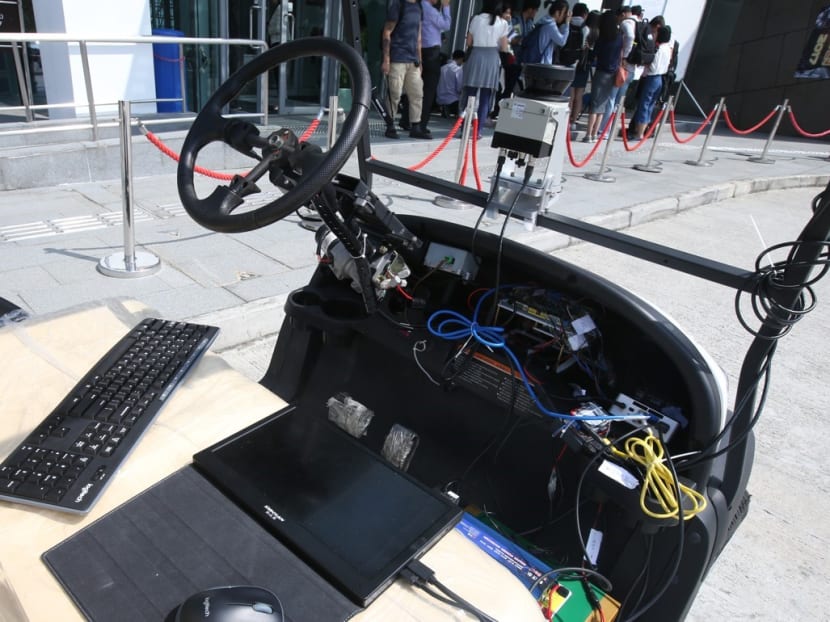Hong Kong's first driverless car to be tested on mainland due to city's strict rules
HONG KONG — Strict regulations have forced the first driverless vehicle built in Hong Kong to take its maiden road test on the mainland despite perfect conditions to do so in the city, say Hong Kong University of Science and Technology (HKUST) researchers.

Hong Kong's first driverless car, which was developed by researchers from the Hong Kong University of Science and Technology. Photo: South China Morning Post
HONG KONG — Strict regulations have forced the first driverless vehicle built in Hong Kong to take its maiden road test on the mainland despite perfect conditions to do so in the city, say Hong Kong University of Science and Technology (HKUST) researchers.
The vehicle was developed by Professor Liu Ming and a team of eight students, who equipped a golf cart with an autopilot system that senses its environment.
The density of cars in Hong Kong makes the city for ideal real-world test conditions, Prof Liu said, but the government restricts such vehicles from operating on roads.
“Hong Kong’s traffic situation is perfect for autonomous vehicles because roads are marked and separated clearly, and other drivers follow the traffic rules,” he said.
Prof Liu added that he would like to talk to officials to see if the regulations could be eased. But if he is unable to convince them, he plans to take the vehicle to Shenzhen for testing.
A spokeswoman for the Transport Department said that permits for conducting trials of autonomous vehicles on Hong Kong roads are “considered on a case-by-case basis”.
She added that the department had offered advice to HKUST in June last year regarding the project but did not receive a reply.
Prof Liu said his vehicle is equipped with a laser that allows it to more accurately detect obstructions in the road compared to other self-driving cars developed.
The on-board artificial intelligence learns from its surrounding environment and any issues it encounters while on the road, so that it can adapt to avoid similar problems in the future, Prof Liu added.
HKUST has spent the past decade researching the project, but retrofitting the vehicle for autonomous driving took about a week and was low-cost compared to other self-driving vehicles.
Prof Liu said the cost of the car was about HK$100,000 (S$17,440), where similar self-driving vehicles cost “millions”. In July, the West Kowloon Cultural District considered buying a driverless car from a French company for HK$2 million.
The converted electric-powered golf cart is able to travel between 30 to 40km before requiring a recharge.
While there are no immediate plans to commercialise the vehicle, Prof Liu said he was “open” to the possibility of doing so.
Singapore plans to have an entire fleet of driverless taxis by sometime next year and has already tested such vehicles in parts of the city.
Professor Michael Wang Yu, the director of HKUST Robotics Institute, said the trend towards Hong Kong becoming more automated and using more robots to do the jobs of humans was “inevitable”, but Hong Kong was slower to adapt compared to other global cities.
“It’s a matter of how much people (in Hong Kong) feel about the urgency to put their money, and to get government to put it their money, to automation and robotics,” he observed.
“Hong Kong people have great deal of tradition and heritage, in a way that our economy is very vibrant, but in terms of gadgets and trendy things people are not really following the trend. There is still a very traditional home-grown type of mentality.” SOUTH CHINA MORNING POST






